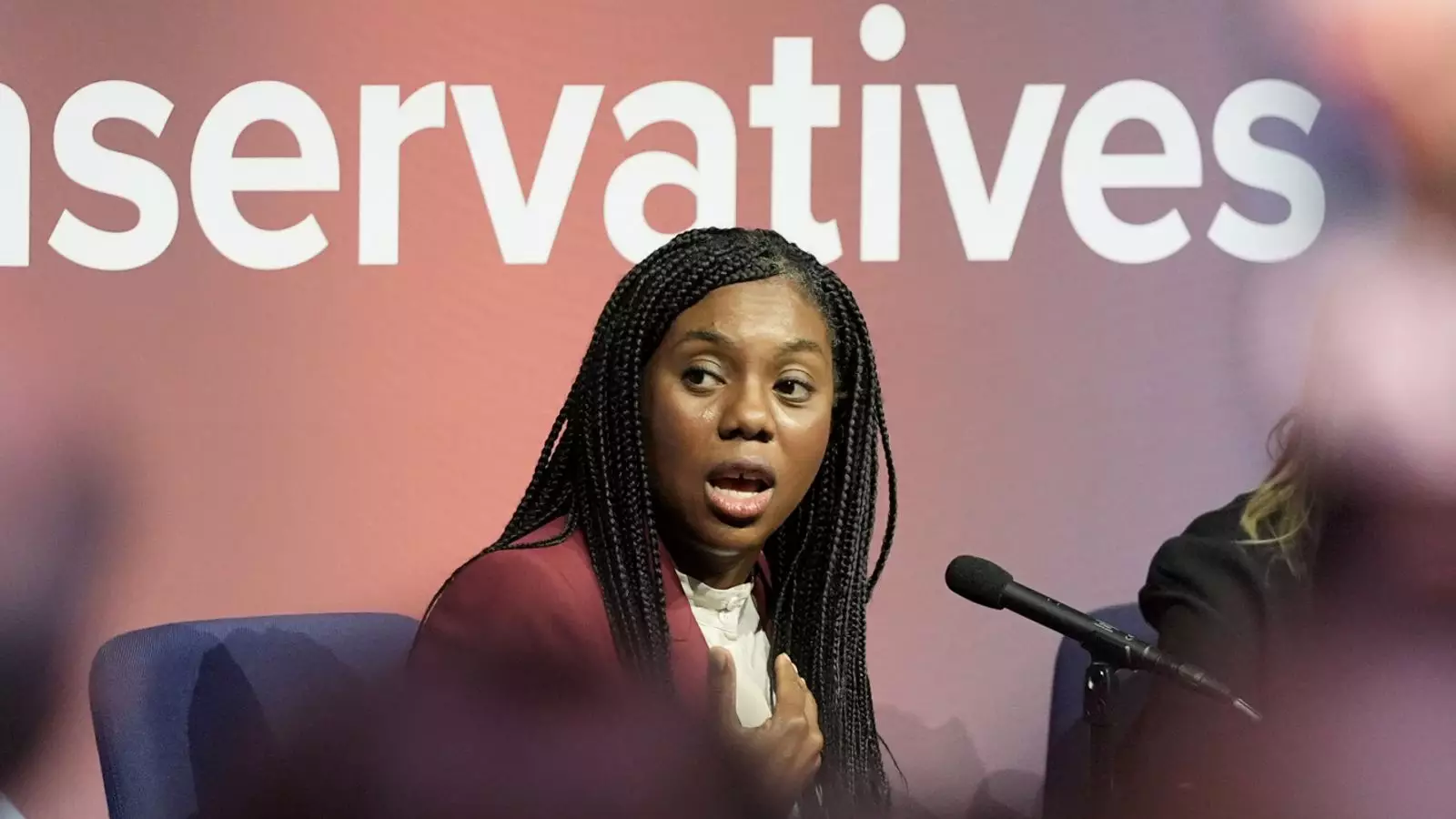Kemi Badenoch, a prominent figure in the Conservative Party and a key contender for its leadership, recently ignited controversy with her remarks regarding civil servants. Declaring that 5-10% of civil servants are “very bad” and potentially deserving of imprisonment, Badenoch has come under scrutiny for her inflammatory statements. This call-out raises questions not only about the integrity of the civil service but also about the responsibility of politicians in wielding such powerful language. With an estimated workforce of about 510,665 full-time civil servants in the UK, labeling as many as 25,000 individuals as detrimental to the government has provoked significant backlash.
Badenoch’s comments were made during a Q&A at a party conference fringe event hosted by the Spectator magazine. Here, she not only criticized a subset of civil servants for alleged misconduct, such as leaking official secrets and undermining their ministers, but also contrasted them with the “magnificent” majority who are reportedly dedicated to their roles. However, the broad strokes of her remarks have raised eyebrows—especially concerning the absence of substantiated evidence to support such serious allegations.
Immediately following Badenoch’s statements, Dave Penman, general secretary of the FDA union representing civil servants, responded strongly. He contended that if there were valid grounds for her accusations, steps would have already been taken to address the issues she raised. The implication here is that without evidence, Badenoch’s remarks might cross the line from legitimate critique to reckless behavior, undermining the civil service’s reputation in the public eye.
Such reactions indicate an ongoing tension between political figures and civil servants, a dynamic that is often exacerbated by what some might label a “culture war.” In this context, Badenoch’s approach appears to reinforce divisions within the political framework in the UK, suggesting a broader narrative of mistrust toward public service institutions.
Furthermore, Penman’s insistence that Badenoch provide evidence underscores a widespread apprehension within the civil service community about the potential consequences of scapegoating. The fallout from unfounded accusations can damage professional relationships, create an atmosphere of fear, and further politicize public service, ultimately affecting governance.
Badenoch has framed herself as a candid voice within politics, claiming that honesty is what the public yearns for in their leaders. However, her tendency to make polarizing statements may be interpreted as political theater rather than genuine accountability. For instance, another contentious remark during the conference was her assertion that current maternity pay levels are “excessive.” While she later clarified that her intent was to critique business regulations rather than the support offered to families, such inconsistencies can dilute her credibility and foster an environment of misunderstanding.
In navigating this complex landscape, Badenoch must tread carefully. While being blunt about societal issues can resonate with certain demographics, it can also alienate others, especially when such statements appear disproportionate or lack empirical backing.
As Badenoch vies for leadership alongside other contenders like Robert Jenrick, James Cleverly, and Tom Tugendhat, the stakes are undeniably high. Polls indicate she maintains popularity among Conservative Party members, perhaps as a result of her straight-talking persona. Yet political landscapes are notoriously fluid, and her recent comments could become liabilities in a crowded field, where each candidate is keen to distinguish themselves.
Ultimately, Badenoch’s situation encapsulates the challenges faced by politicians today: balancing the need for authentic representation with the pitfalls of incendiary rhetoric. The ongoing discourse surrounding her remarks on civil servants, while potentially beneficial for her political capital in the short term, could have long-lasting implications for her credibility, the reputation of the civil service, and the nature of political dialogue within the UK.
As the competition intensifies, it remains to be seen whether her strategy of provocative communication will be enough to secure her position among the frontrunners or if it will backfire, further complicating an already intricate political arena.



Leave a Reply